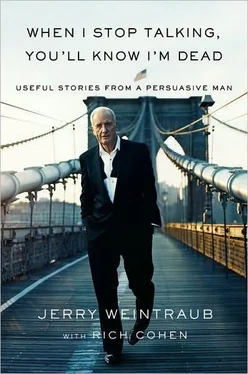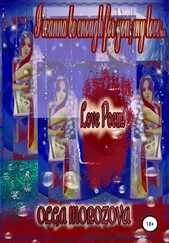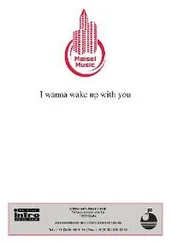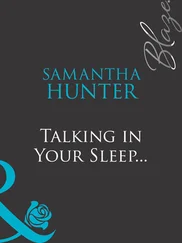"Jerry Weintraub?"
"Yeah?"
"You've got to help me!"
"Why?"
"Because I've got dreams!"
"All right, my boy! All right."
Zeppelin was wild. Our first concert with them was at Nassau Coliseum on Long Island. They were bitching after the show about the sound system: It did not have enough channels, not enough speakers, blah, blah. It was so loud the place was shaking. I was worried about a cave-in or structural disaster. But no, they wanted bigger, louder, more decibels, more, more, more. When these guys played "Stairway to Heaven," they wanted to build an actual stairway to heaven. The next day, I went around with a few of my guys and gathered every box on the island. We painted them black. I can still smell the fumes from the spray-paint. They made me high. We brought the boxes to the Coliseum and stacked them in huge piles on either side of the stage, hundreds of these goddamn things.
"What the hell are these, Jerry?"
"What do they look like? They're the goddamn speakers, schmuck. You want loud, you're gonna have loud."
That night, Zeppelin exploded onto the stage as if they'd been shot from a cannon, like clowns at the circus, danced and screamed and made a lot of wonderful noise, reveling in the mighty power of this wall of speakers, which, of course, were not connected to anything. If you expect loud, loud is what you are going to hear.
A lot of the time, these guys made demands just to be demanding. These were rock stars. They needed to say "Screw you!" to whoever was cutting the check or wearing the suit. It's part of the job description.
One afternoon, before Zeppelin was scheduled to play at Madison Square Garden, I went into a men's store on Fifth Avenue and picked up a gorgeous suit that had been tailor-made for me in London. I tried it on for the mirror-hand-stitched, double-breasted, beautiful-put it in a bag, and carried it to the arena, where I hung it in a closet in the dressing room, with a note pinned on the front: WEINTRAUB! HANDS OFF!
I went out front to watch the show. The lights went down, the announcer spoke over the sound system: "Now, the loudest, most dangerous rock band on earth…" The crowd went nuts, Zeppelin came on stage. Jimmy Page, John Paul Jones, Robert Plant. John Bonham, the drummer, came out last. He was wearing whatever crap those guys wore, but over it he had on a beautiful blue jacket.
What the hell?
He sat behind the drums, then, in one clean motion, ripped off the sleeves so you could see his arms and shouted, "How do I look, Jerry Weintraub? I've got your new suit." He held up the arms of the suit, then launched into "Black Dog."
It was hysterical.
For years, I handled the Moody Blues, a British group that went through various incarnations before breaking through in 1965 with the song "Go Now." (They are best known for "Nights in White Satin" and "Tuesday Afternoon.") I had a brilliant pitch for these guys: I sold them as everyone's second-favorite band. Are you a Beatles freak? Well, you're going to love the Moodies second. Are the Stones your thing? Great! Then check out the Moodies. You'll like them almost as much. We made a lot of money with that. We were, in essence, harvesting several fields at once, collecting everyone's runoff. Then these guys did a stupid thing. They broke up. It always happens. The more successful a band, the more certain its demise, as each member gets to thinking, "Well, it's because of me, it's my success, and I'm tired of sharing it."
Two of the Moodies, Justin Hayward and John Lodge, calling themselves the Blue Jays, decided to make their own record. I tried to talk sense. "We've spent years positioning the Moody Blues, and, as a result, millions and millions of people consider you their second-favorite band," I explained, "but no one has heard of the Blue Jays. You'll be starting from scratch."
Did they care?
Of course not.
When I could see they had made up their minds, I decided to get on board, pitch in. For me, the challenge was plain: get people to judge these veteran rock stars as if they were new, notice, and take time. Convincing cynical members of the establishment to rethink something they believe they already know is no small thing. You might call it a relaunch, or rebranding, but it really just amounts to a man from the Bronx yelling: Here, here, look over here! Remember this? It's still really good! They worked on their album for a year. When it was finished, I had beautiful invitations printed and carried by courier, with great pomp and circumstance, to journalists and critics all across the country. They read like tickets to an exclusive, impossible-to-get-into, one-time-only show by the geniuses behind your second-favorite band-Justin Hayward and John Lodge, playing at Carnegie Hall in New York City.
Critics and producers and celebrities turned up from all over the world. The show was in the afternoon. They took their seats. You could feel a tremendous buzz as the lights went down. Everyone was excited. But when the curtain came up, instead of rock stars and their band, there was just a huge, fantastic sound system. You could see tremendous speakers, but no band. Then I played the record, from start to finish. All along, people were yelling, "Down in front! I can't see!" But there was nothing to see, just all the hardware. I wanted to play the songs-I wanted these people, these influential people, to sit and listen to them, really listen, as the record unfolded. Yes, I could have had the Blue Jays perform (they would have been great), but the critics knew Hayward and Lodge, or thought they did. They would watch the show, like it or not like it, and move on. But this night, with that record playing on stage, well, they would never forget it. Some would denounce me, sure, but, with each denunciation, they would mention the record and the band.
I held a press conference after the show. The critics filled the room. They were furious. Jann Wenner, the owner and editor of Rolling Stone, and a great guy, was the first to speak. "You, sir, are a charlatan," he said. He was red with anger. "You have tricked these people with a stunt, made them come all this way, and for what? To sit and listen to a record? They could have done that at home and saved the money and time and fuel. You are P. T. Barnum."
"Okay, okay," I said, trying to calm everyone down. "You've had your say. Now let me have mine-after that, call me whatever you want. The fact is," I explained, "we've spent an entire year of our lives working on this record, and we're proud of it, and think it deserves to be heard, really heard. So what are we supposed to do? Send it to your house so you can put it on the record player? Well, maybe your stereo stinks and the sound stinks, and maybe you had a fight with your wife, and maybe your baby puked on you. So it plays, but it does not get heard. Well, now you have heard it. So go home and say whatever you want about me, but remember the effort that went into this record."
Rolling Stone ran an editorial about the show. It filled half a page. I was called many terrible names, but, in the end, they said, well, you know, he kind of has a point.
We were remaking the concert business in those years. Starting with Elvis, we took an industry that had been regional, divided among fiefdoms, with each territory controlled by a single promoter, and made it national. In the process, we cut out the middlemen. It was just me and the artist, working as partners, cutting deals directly with the owners of concert halls. Costs fell, everyone was enriched. As a result, artists sought me out, wanting to cut the same deal. Which increased my power. I was now able to go to the owner of Madison Square Garden and say, for example, "I'm going to give you thirty nights of shows this year-what kind of break can you give me on the hall?" In this way, overhead fell, and, as overhead fell, profits rose, attracting still more artists, which meant still more dates, which meant still better deals, which meant still more profits, and so on.
Читать дальше

![Сьюзан Кейн - Quiet [The Power of Introverts in a World That Can't Stop Talking]](/books/33084/syuzan-kejn-quiet-the-power-of-introverts-in-a-wo-thumb.webp)










